Meet Our Donors
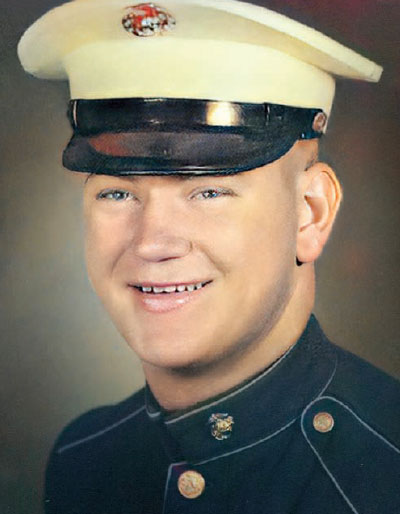
Cpl Martin Johnson
At an early age Martin Johnson became fascinated with the Marines and their exploits. Marty says, "I really admired the Marines, they looked rugged, fit and confident, seeing them made me want to be a Marine – so I enlisted. This was a life-changing decision for me – the Marines taught me lessons that served me well throughout my life and career."
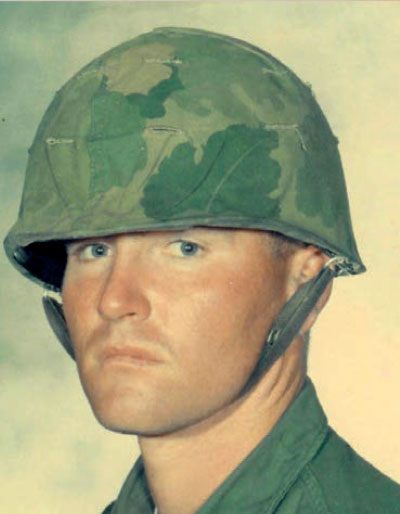
Larry Bittner
Rather than wait to be drafted into the Army, Larry Bittner wanted to be a Marine, the toughest fighting force. Little did Larry know that his high school typing class may have saved his life by qualifying him for an administrative position stateside with the Marine Air Wing in N.C.
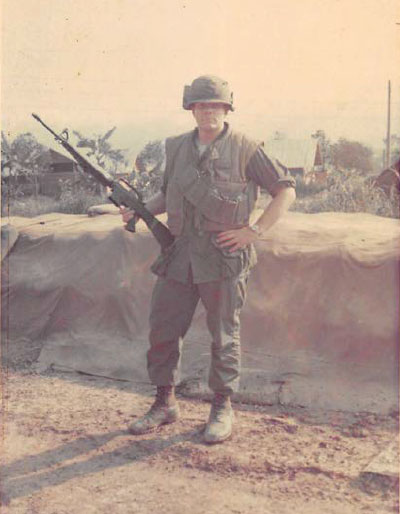
Dennis Voge
Dennis Voge had family members who served in WWII, including an uncle who enlisted in the Marine Corps right after the bombing of Pearl Harbor. Like them, Dennis felt it was his patriotic obligation to serve his country. In 1967, after graduating from college, Dennis enlisted in the Marine Corps – he wanted to select the branch he would serve in and not leave it up to the draft. Most of his two years of service was with the 2nd battalion 9th Marines after which he went to law school.
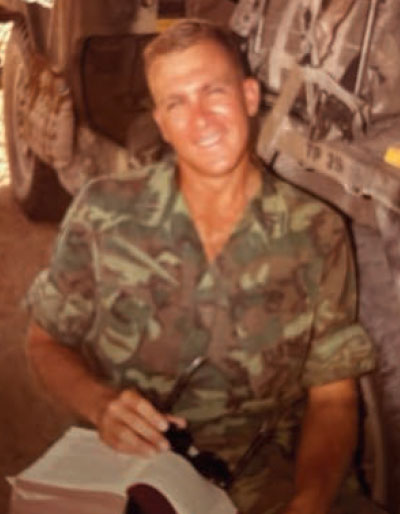
Lt Col Dave Jonas
Dave Jonas enrolled in the PLC program, intending to fulfill his initial obligated commitment. But serving under Col Wally Campbell altered his thinking in a big way. Wally understood what it meant to look out for his Marines. Says Dave, "He shaped my leadership style and paved the way for me to serve 20 years. I had opportunities only the Corps could have made possible — commanding two units including Headquarters Company, 5th Marines and deploying on two WESTPACs as the 13th MAU (MEU) SJA." Dave has the distinction of being the first judge advocate in the history of the Army, Navy, Air Force or Marine Corps to argue a case before the U.S. Supreme Court.
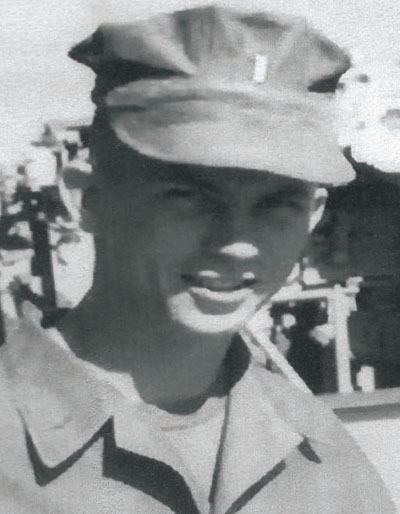
Lt Col David A. Higley
David Higley's family members have served in the United States military since before the Revolutionary War, but he was the first Marine. In 1963, when faced with the draft, David enlisted in the Marine Corps. He overcame a potentially disqualifying physical condition to attend OCS and served as a forward observer and XO of an artillery battery in combat. David went on to become a highly decorated Marine Judge Advocate and respected civilian trial attorney. He attributes his successful Marine Corps career to one of his mentors, Captain James Wesley Ayers. Captain Ayers was killed in Vietnam, but David made it his mission to visit his advisor's gravesite to pay his respects.
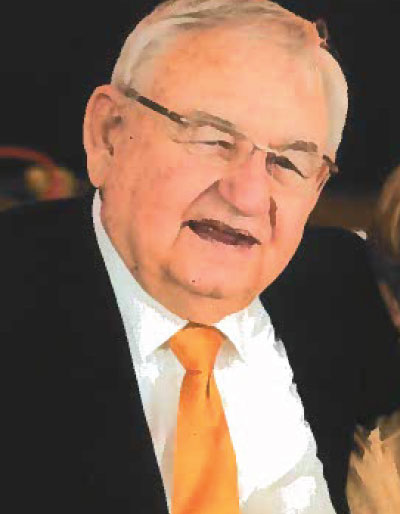
Charles (Chuck) Chritton
In 1957, while Charles (Chuck) Chritton was waiting for his friend at the Marine Corps recruiting office, he asked the recruiter if the Corps was tough. The recruiter replied it was extremely tough and in a quite dismissive tone said he didn't think Chuck could make it. Within a week, 18-year-old Chuck enlisted. The recruiter was wrong! Major Chritton proudly served 14 years in the Corps (8 years on active duty and 6 years in the reserves).
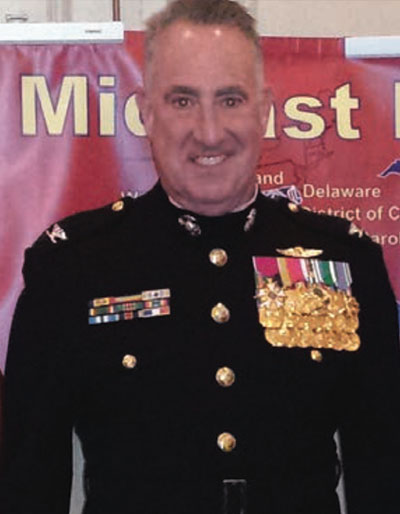
Col. David Cahn, USMC (Ret.)
Colonel David Cahn wanted to be a Marine, just like his father, a WWII and Korean War veteran who instilled in his son the Corps' values of hard work, integrity, loyalty, and to never give up. During his career, Dave served with several commands, including the Marine Barracks at 8th & I, 3rd RECON BN and CENTCOM Fwd. He says, "The Corps became my family -- people I could trust."
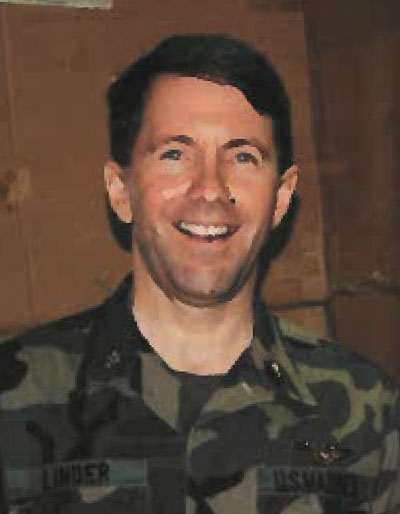
Lt Col Stephen Thomas Linder, USMC (Ret.)
When he was accepted at the U.S. Naval Academy in 1965, Stephen Linder's goal was to be a Navy officer. Then he experienced life at sea, and realized he wanted to be a Marine pilot. Says Steve, "I wanted to be part of an elite fighting force, one that had incredible esprit de corps." He earned his wings and flew A-4s in the fleet. In 1975, Stephen was among the experienced pilots recruited to learn to fly AV-8A Harriers. After taking time off to earn an MBA he served in the Reserves until he retired in 1995.
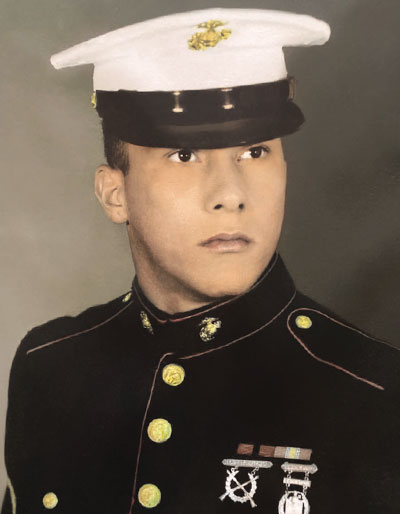
Cpl Donald Campanile
Cpl Donald Campanile knew about many WWII Marine victories, and they inspired him to become a Marine. In 1954 he told his Marine buddies he wanted to enlist. To discourage him they gave him the Guidebook for Marines and warned him that boot camp was tough, but their advice fell on deaf ears.
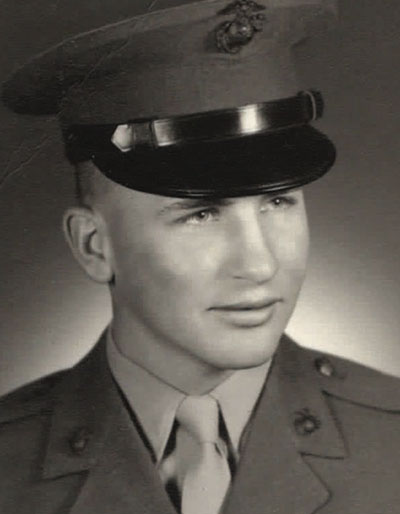
Gerald "Jerry" Brixius
Not wanting to be drafted into the Army in 1966, Gerald "Jerry" Brixius enlisted in the Marine Corps. Strong and tough from growing up on a farm, he excelled in boot camp. Within months Jerry was in Viet Nam and remained in the Corps until 1972. Sgt Brixius realized that what the Corps taught him—how to improvise, adapt, and overcome —are skills he has used throughout his life.
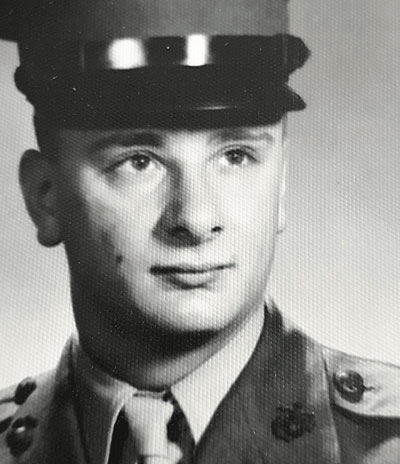
Sgt. Laurence Gaudino
The discipline of the Marines in the movie Sands of Iwo Jima and during JFK's presidency and funeral made a lasting impression on 14-year-old Laurence (Larry) Gaudino. Some older high school friends who had enlisted in the Marines and his father, a WWII Army veteran, influenced Larry's decision to enlist in 1967. His MOS was aviation supply—ordering and maintaining control of the NORS parts for F4 Phantoms stateside and in Vietnam.
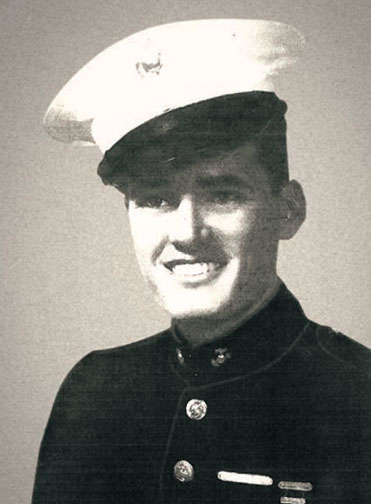
David C. Graham
David Graham's father (left) enlisted in the Marine Corps in 1943 and was in the second wave of Marines that landed on Iwo Jima. David tried to enlist. But, growing up around loud farm equipment and hunting severely damaged his hearing, so he failed the hearing test four times. Despite this, David still admired the Corps.
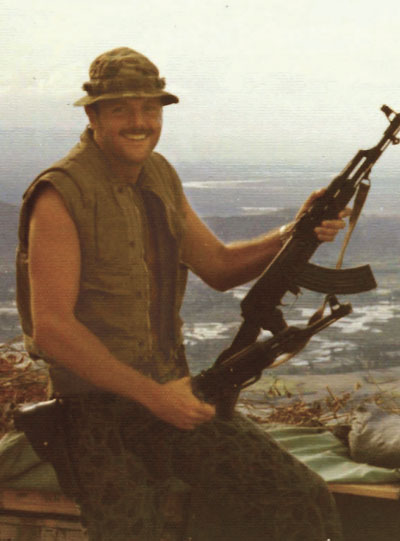
Capt. Gordon Evans USMC
In 1965, five days after his 18th birthday, Gordon Evans enlisted in the Marine Corps and had his sights on becoming a pilot. He enrolled in the PLC program at Cornell, attended TBS (Alpha Co. 1-69) and earned his Navy wings. After flying combat missions in Vietnam he volunteered to stay in country with the 1st ANGLICO, where he and his radio team provided air support for the ROK Marines. Gordon intended to go on Active Reserves, but his year-round job as a farmer didn't afford him time off for training. Although a disappointment, Gordon never lost his affinity for the Corps.
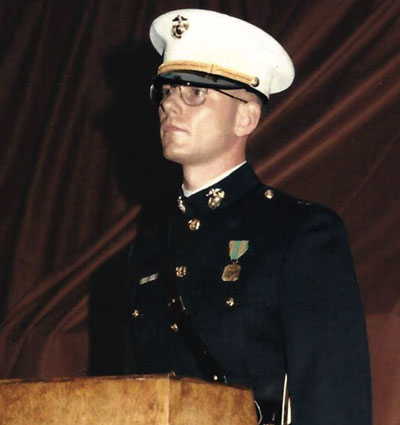
Maj. Raymond "John" Vanden Berghe, Jr., USMC (Ret.)
Sharing accounts of Marine Corps valor runs in John Vanden Berghe's family. Even though his grandfather landed on Guam and his father served in the Corps as a Reserve officer, John enrolled in the U.S. Naval Academy intent on being a submariner—until he spent a week on a sub. That experience made him realize subs weren't for him—he wanted to follow in his father's footsteps and be a Marine.
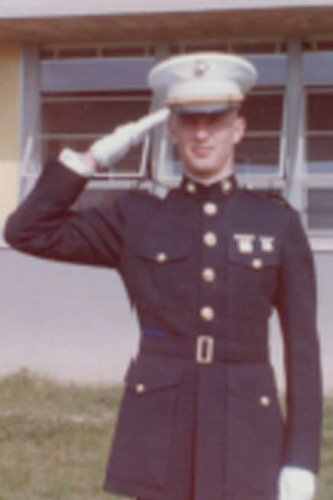
Capt Jack L. Anderson USMCR
Growing up during WWII fostered Jack Anderson's interest in both military history and the Marine Corps. After completing college ROTC with a degree in civil engineering, he served on active duty as a 2LT in the Marine Corps, then in an engineering company reserve unit. He wanted to be an aviator but wasn't able to do so at the time. He spent more than 30 years giving financial advice to individuals and advising them of how important it is to update gift and beneficiary plans.
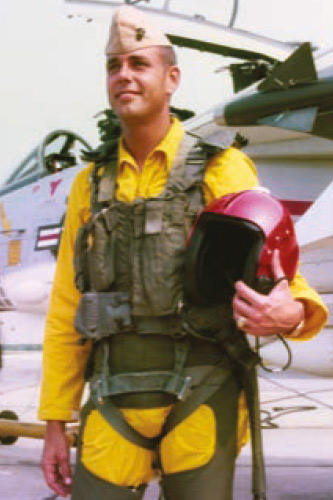
Bill Bauer, USMC
LtCol Harold W. Bauer USMC was awarded the Medal of Honor posthumously for his service in the South Pacific during World War II. What his only child, Bill, learned about his father— U.S. Naval Academy graduate, naval aviator, war hero—made him want to follow in his father's footsteps. After Bill's own graduation from the Naval Academy, he served in the Marine Corps for 27 years. He flew Phantoms in Vietnam and as a test pilot was the first Marine to fly the F-14 Tomcat. He is also a member of the prestigious Golden Eagles.
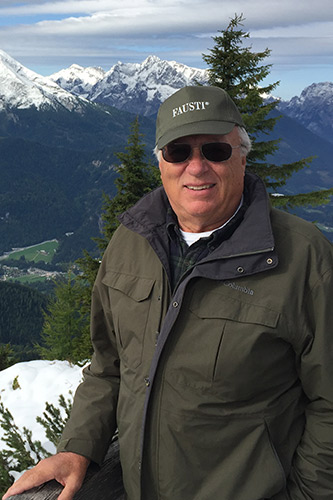
Sgt. Ronald (Ron) J. Kienholz USMC
Ron Kienholz's years in the Corps—from 1968 to 1972—had an immense impact on his life. When he became the owner of a manufactured home park that his grandfather had founded, Ron discovered that both his leadership skills to run the business and his people skills to deal with tenants had actually been acquired when he was a Marine.
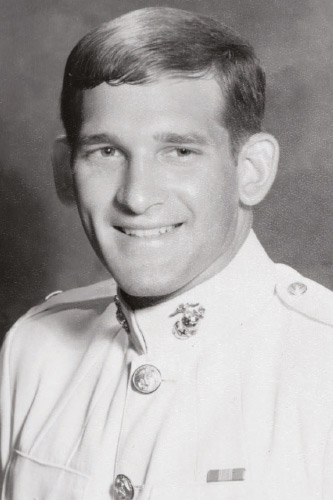
Capt. Michael R. Sudzina USMCR
Mike Sudzina enrolled in the PLC program while at Bucknell University and was commissioned at graduation. Following TBS (3-70), he became an artillery officer. He was sent to the 10th Marines at Camp LeJeune, then the 1st Marine Air Wing in Vietnam. He left the Corps after serving in the inactive reserves.
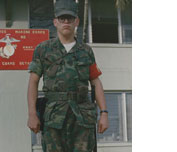
Staff Sergeant Kevin Grewe
Staff Sergeant Kevin Grewe is a 1775 Society member (an honorary recognition for those who have designated a gift from their estate to the Marine Corps Heritage Foundation), but the foundation of his deep respect for the Marine Corps was laid many years before that.
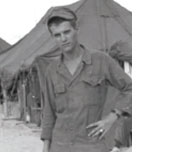
Mr. Glenn Johnson
Glenn Johnson's involvement with the USMC began with a postcard from a Marine recruiter. He responded and just six days after his high school graduation he was on his way to Basic Training. He calls that the best decision he ever made.
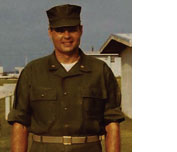
Col Thomas J. Dalzell USMC (Ret)
Tom Dalzell is used to making tough decisions: he's trained thousands of Marines; been in charge of all types of staffs and worked on multi-million dollar projects. "I served 31 years on active duty in the United States Marine Corps in all ranks from Second Lieutenant to Colonel in combat engineering units.
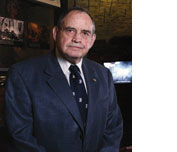
LtCol Nelson Olf USMC (Ret.)
LtCol Nelson Olf USMC (Ret.), an Engineer officer, attributes his happy and successful life in large part to what he learned and experienced in the Marine Corps. As an expression of his gratitude, Nelson named the Marine Corps Heritage Foundation as the beneficiary of his IRA.
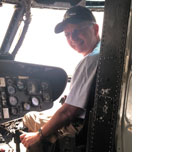
Tony Vanchieri
Anthony (Tony) Vanchieri grew up in a small town in New Jersey with limited opportunities. Tony always admired the Marine Corps—having listened to his stepfather's stories of his time in the Corps—and he enlisted in 1976. One day, as a helicopter flew overhead, he realized he wanted to get out of the trenches and into the cockpit.
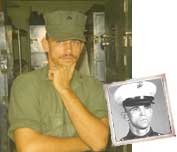
Cpl Bill Bogard USMC
Cpl Bill Bogard USMC graduated from high school in 1969 and was accepted into the U.S. Naval Academy. He happened to pass a Marine recruiting station one day, and out of the blue, the John Wayne movie, Sands of Iwo Jima, came to mind. At that moment, Bill knew he wanted to be a Marine, so he walked in and enlisted.
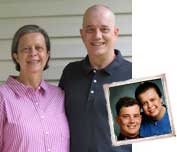
GySgt Patrick Mason USMC (Ret) and Mrs. Phyllis Whaley Mason
GySgt Patrick Mason USMC (Ret) spent 20 years in the Marine Corps, and it was there that he met Phyllis, a civil servant working for the Marine Corps. The Marine Corps Heritage Foundation (MCHF) had been part of their estate planning for a long time. Patrick's reasoning is simple: "We have received so much from the Marine Corps; this is a way of giving back. To us, it's a means of honoring Marines past, present, and future.

Steve Shaw
Steve Shaw Enlisting in the Corps was the best decision I could have made in 1956. I was accepted into the band and enjoyed it more than I could have known. My drum major was the ideal role model. What I learned from this Gunnery Sergeant and other Marines guided me professionally and personally my entire life.
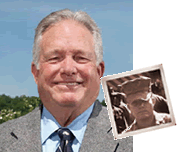
Jack Dufour, USMC (Ret)
Early on, Jack Dufour wanted to be a Physical Education teacher and a coach. However, like many boys his age, he lacked the maturity and drive to make a successful transition into college. But when a Marine encouraged Jack to enlist, it was the turning point in his life.

Col Sara "Sally" J. Pritchett, USMC (Ret)
When suicide bombers attacked the Marine barracks in Beirut, Lebanon on 23 October 1983, it was the Corps' deadliest single-day death toll since Iwo Jima. Colonel Sara Pritchett, USMC (Ret), joint public affairs officer for the 4th Marine Division and the 4th Aircraft Wing, had overall responsibility for the media. Sally is proud that she played a role in such an important historical event, and it is one of her fondest memories.
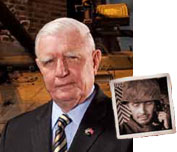
Ron Christmas, USMC (Ret)
Ron Christmas' USMC (RET) Marine Corps service spans 34 years, culminating with retirement as Lieutenant General. In 1968 Christmas took part in the battle for Hue City and was subsequently awarded the Navy Cross for his actions. He is the past President and CEO of the Marine Corps Heritage Foundation, where he led the charge to expand the National Museum of the Marine Corps.
Interested in joining the 1775 Society?
Contact Gayle Union, Estate Administration and Gift Planning Manager, at (703)586.7463 or email union@marineheritage.org; or complete our request for information form.
Contact Us
Planning your estate and legacy for future generations, including your charitable interests, takes careful evaluation. Consulting with the appropriate professionals can assist you.
The material presented on this Planned Giving website is not offered as legal or tax advice.
Read full disclaimer|Sitemap|Planned Giving Content © 2026 PlannedGiving.com
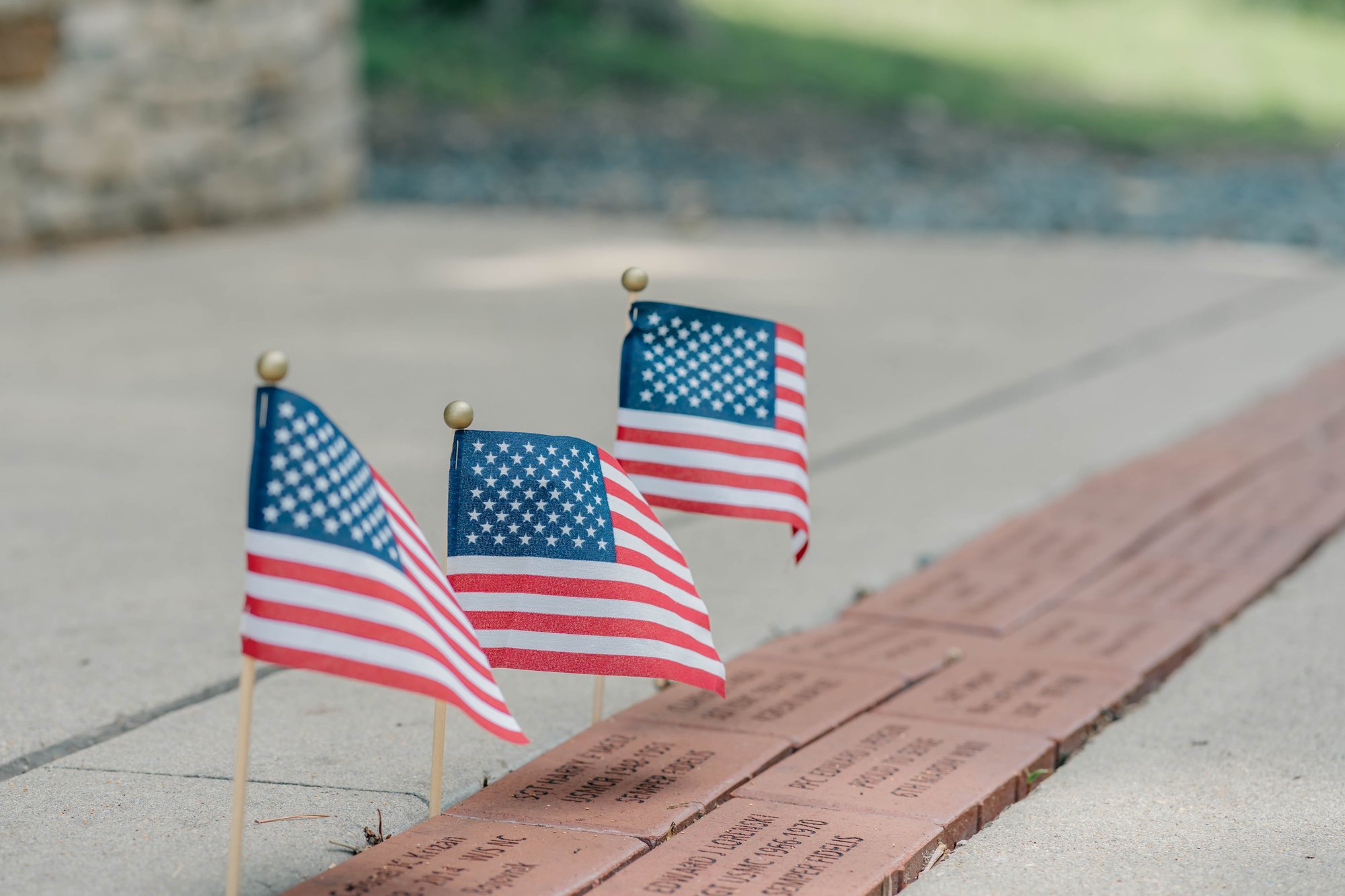
Create a Permanent Tribute on the National Museum of the Marine Corps' Historic Grounds
Leave your mark on history and honor someone who has served our nation. The Marine Corps Heritage Foundation’s Commemorative Brick Program offers a unique way to recognize Marines, veterans, family members, and friends while supporting the Museum’s mission to preserve Marine Corps history.
Each personalized brick is permanently installed along the pathways of Semper Fidelis Memorial Park at the National Museum of the Marine Corps — a breathtaking setting that overlooks the Museum and pays tribute to the service and sacrifice of all Marines.
A Meaningful Gift and Lasting Tribute
For a $300 donation, your brick will be engraved with your personal message and placed in this scenic and historic setting overlooking the Museum.
Engraving Details:
- Up to 3 lines of text
- 20 characters per line (including spaces and punctuation)
Each brick is a testament to the Marine Corps legacy and helps preserve and share Marine Corps history for generations to come.
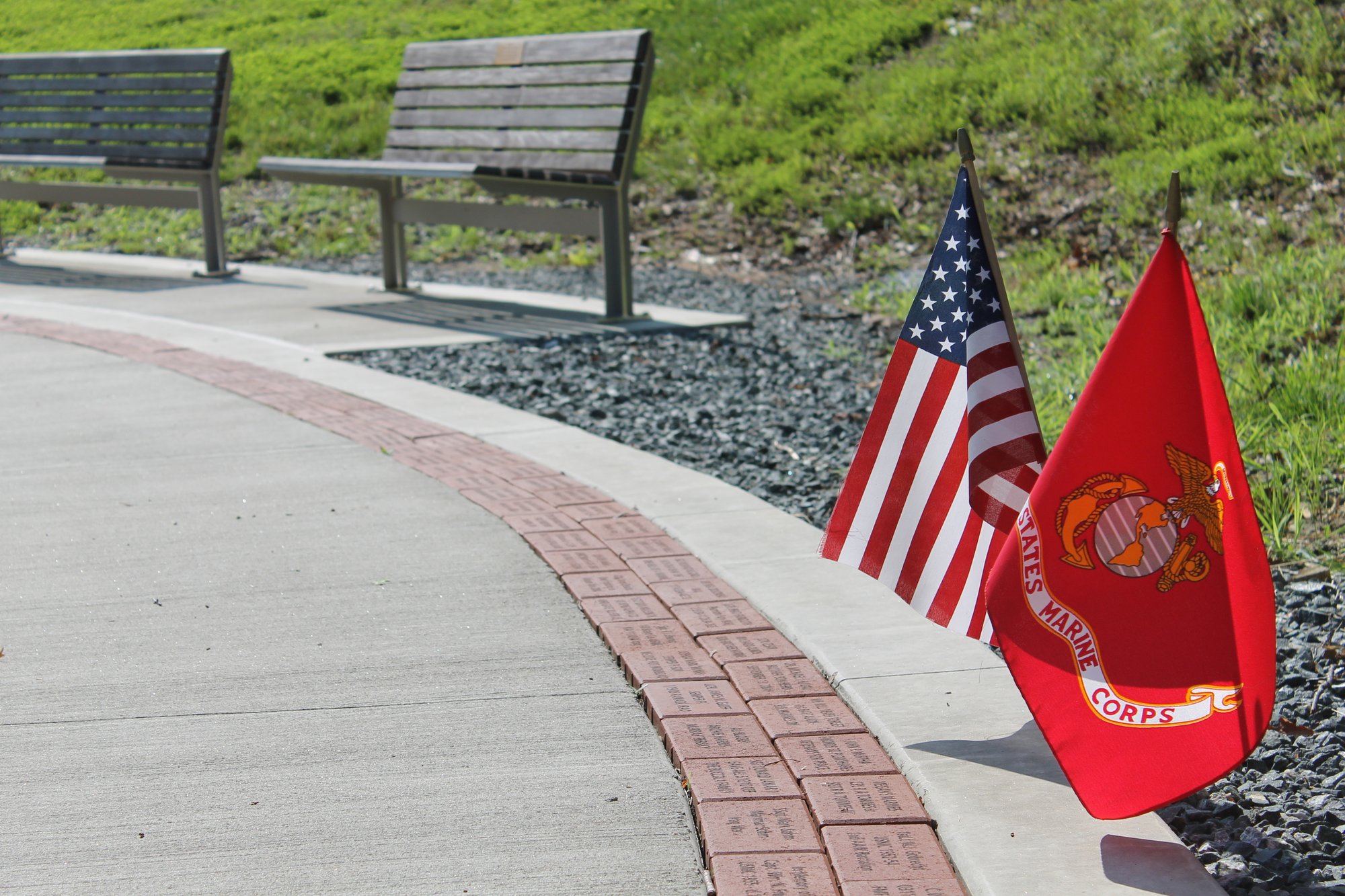
Order Your Commemorative Brick Today
Make your lasting tribute by ordering your brick online. Your donation supports the Marine Corps Heritage Foundation’s mission to preserve the history, traditions, and culture of the Marine Corps.
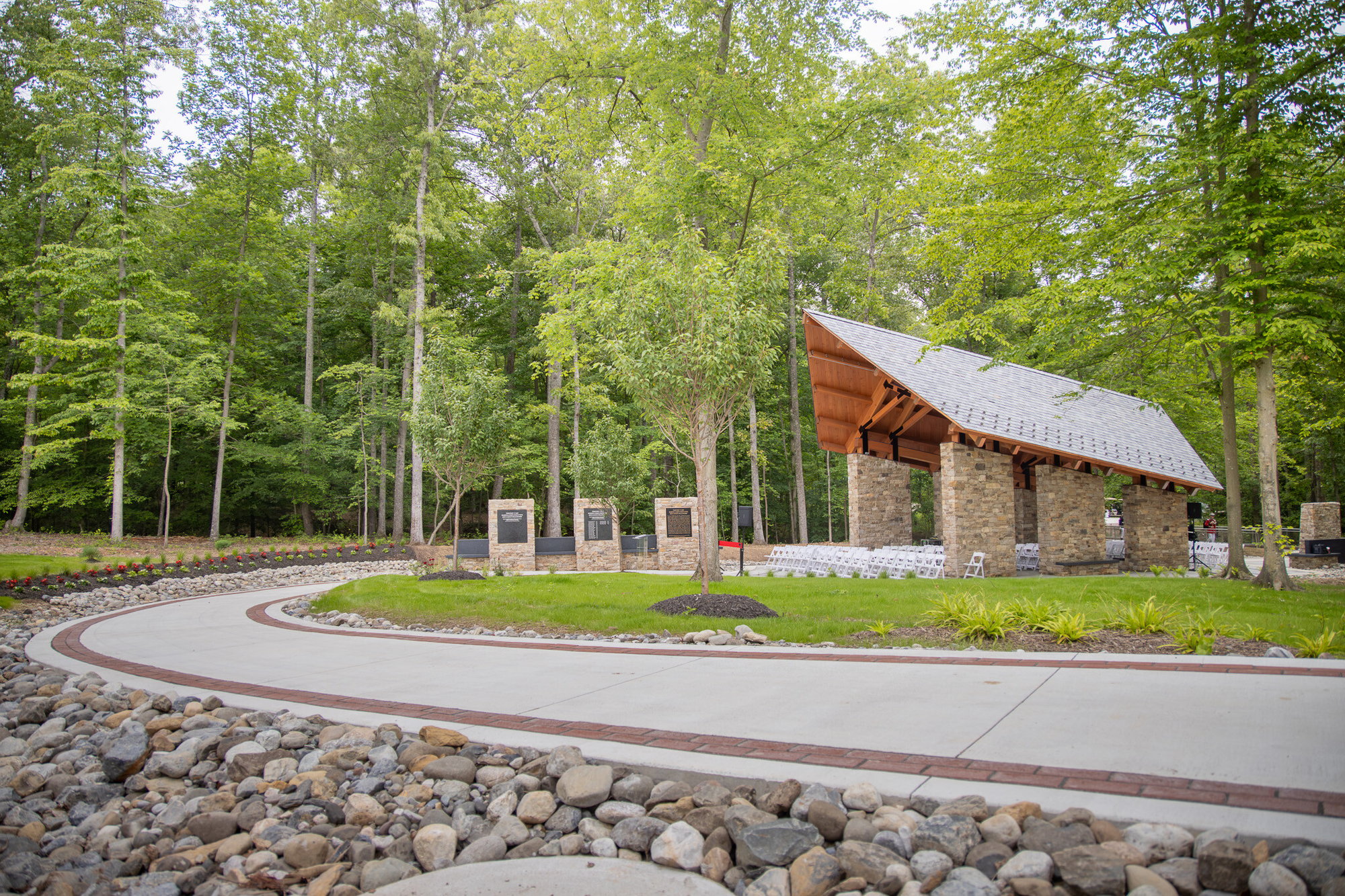
Visit Your Brick at Semper Fidelis Memorial Park
Once installed, we welcome you to visit your tribute brick in Semper Fidelis Memorial Park — a peaceful space dedicated to reflecting on the service and sacrifice of all Marines.
Use the Online Brick Locator to search by name, brick number, city, state, or inscription for a detailed map of each commemorative brick installed on the Museum grounds.
For best results, we recommend entering information into one field only and clicking Submit.